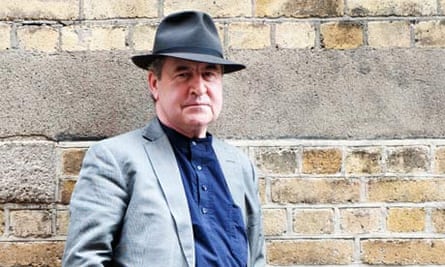The sort of lengthy, involved literary fiction written by the likes of Dickens or Faulkner has met its match in the shape of the internet, according to the author Tim Parks, who believes modern readers are too distracted to appreciate serious literary novels.
Parks's claims follow swiftly on the footsteps of similar assertions made by his fellow novelist Will Self. He said in May that "the literary novel as an art work and a narrative art form central to our culture is indeed dying before our eyes", as "the hallmark of our contemporary culture is an active resistance to difficulty in all its aesthetic manifestations".
Parks, writing in the New York Review of Books, has now asserted that "the state of constant distraction we live in", thanks to email, messaging, Skype and online news, "affects the very special energies required for tackling a substantial work of fiction - for immersing oneself in it and then coming back and back to it on numerous occasions over what could be days, weeks or months, each time picking up the threads of the story or stories, the patterning of internal reference, the positioning of the work within the context of other novels and indeed the larger world".
When we do read, "there are more breaks, ever more frequent stops and restarts, more input from elsewhere, fewer refuges where the mind can settle," according to Parks. "It is not simply that one is interrupted; it is that one is actually inclined to interruption. Hence more and more energy is required to stay in contact with a book, particularly something long and complex."
No art form, he believes, "exists independently of the conditions in which it is enjoyed", and so contemporary fiction is going to adapt; in fact, it is already doing so. Although he acknowledged that long and complex novels are still written – Parks pointed to the stellar sales currently being enjoyed by Norwegian author Karl Ove Knausgaard – he said that "the texture of these books seems radically different from the serious fiction of the 19th and early-20th centuries".
"There is a battering ram quality to the contemporary novel, an insistence and repetition that perhaps permits the reader to hang in despite the frequent interruptions to which most ordinary readers leave themselves open," said Parks, adding that even Philip Roth, who predicted five years ago that the novel would become "cultic" in 25 years because "the book can't compete with the screen", "has himself, at least in his longer novels, been accused of adopting a coercive, almost bludgeoning style".
Parks finished by predicting that "the novel of elegant, highly distinct prose, of conceptual delicacy and syntactical complexity, will tend to divide itself up into shorter and shorter sections, offering more frequent pauses where we can take time out".
Meanwhile, "the larger popular novel, or the novel of extensive narrative architecture, will be ever more laden with repetitive formulas, and coercive, declamatory rhetoric to make it easier and easier, after breaks, to pick up, not a thread, but a sturdy cable".
Perhaps proving Parks's point about distractibility, authors took to Twitter to attack his claims, pointing to recent literary hits including Eleanor Catton's Booker-winning The Luminaries, Donna Tartt's Pulitzer-winning The Goldfinch and Hilary Mantel's Booker-winning Wolf Hall. Writer Lee Rourke called Parks's essay "yet another wrongheaded bleat against the digital network. Man, Literature has ALWAYS been the network," adding: "Writers, keep that internet SWITCHED ON." Others pointed to Frank Kermode's comment from the 1960s, that "the special fate of the novel, considered as a genre, is to be always dying".
Sam Jordison, the publisher who picked up Eimear McBride's stream-of-consciousness novel A Girl is a Half-Formed Thing after it had been rejected by mainstream presses for years, said that "just because Tim Parks is busy that doesn't mean that there aren't other people able and willing to put time in to serious reading - or into serious writing". McBride won the Baileys prize earlier this month for a book judges called "engaging, readable, unputdownable".
"Plenty of people are writing long complicated books. Plenty of people are writing long elaborate sentences. Plenty of people aren't too. It was ever thus," said Jordison. "Just as there have always been grumpy older writers predicting all this is going to end."

The award-winning novelist John Banville brushed away Parks's concerns, saying he didn't think "a very large number of people ever read complicated writing", and that "we haven't changed intellectually because of technology".
"I don't really mind if people stop reading big middlebrow Victorian novels – that's no great loss, and what they read them for you can get from the television nowadays," said Banville. "And frankly I wouldn't miss Faulkner very much either."
Banville, who won the Booker for his novel The Sea, predicted that "the kind of novel I'm trying to write will survive, but of course it will be a minority sport. I don't mind that – every writer who's worth anything has about 2,000 readers. Many more admirers, maybe, but about 2,000 readers."
There will always be art, predicted Banville, but it will appeal to "a minority. Most people don't need art – they get their sense of beauty elsewhere. From children, sport, nature – art is a specialised medium."

Francesca Segal, who won the Costa first novel prize for her debut, The Innocents, said she "so very much" wanted Parks's proclamation not to be true.
"No doubt it's true that commercial fiction will respond to our new shift in attention patterns by doing exactly as he predicts – with endless reiteration and increasingly bullying emphasis – but commercial fiction has always responded to market pressures. As devoted, usually obsessive readers themselves, I believe literary novelists will always honour the stories they tell and the questions they ask within them by giving them their best form, not their most accessible. And in any case, I take comfort in the fact that each generation always prophesies its own downfall," she said.
"After all, he cites Our Mutual Friend as a novel deserving of unbroken focus and concentration, but it was first published as a 20-part monthly serial, during which time readers would have had to weather all sorts of other breaks and interruptions – a month between episodes is a long time, and a different sort of interrupted attention."

Comments (…)
Sign in or create your Guardian account to join the discussion